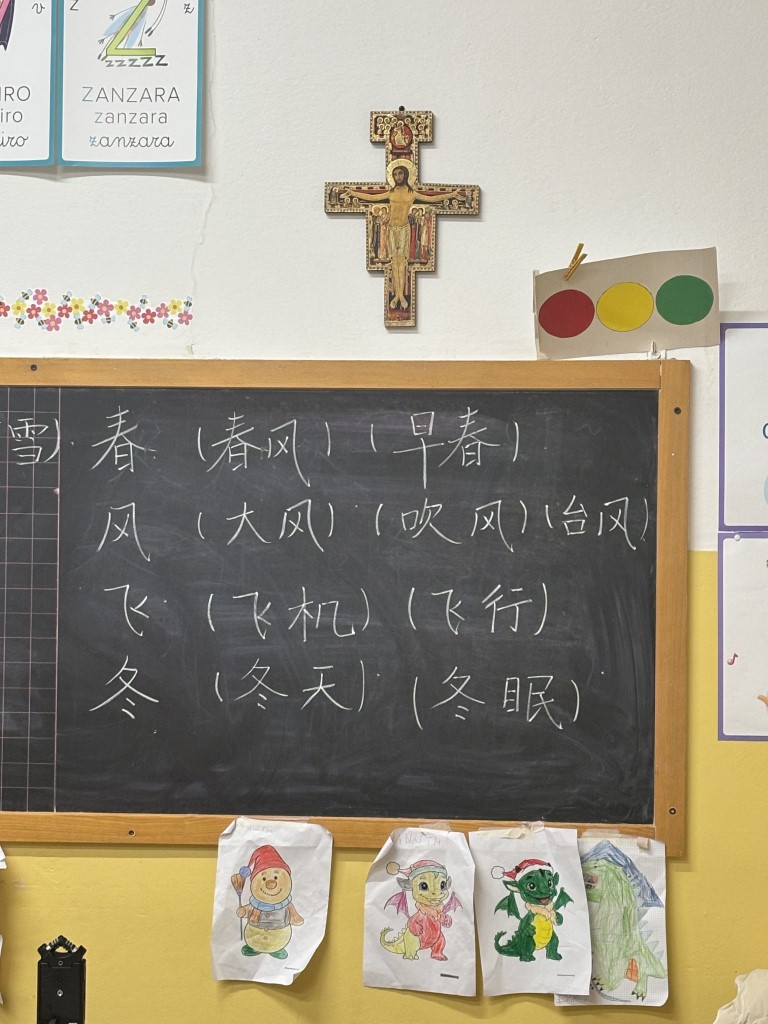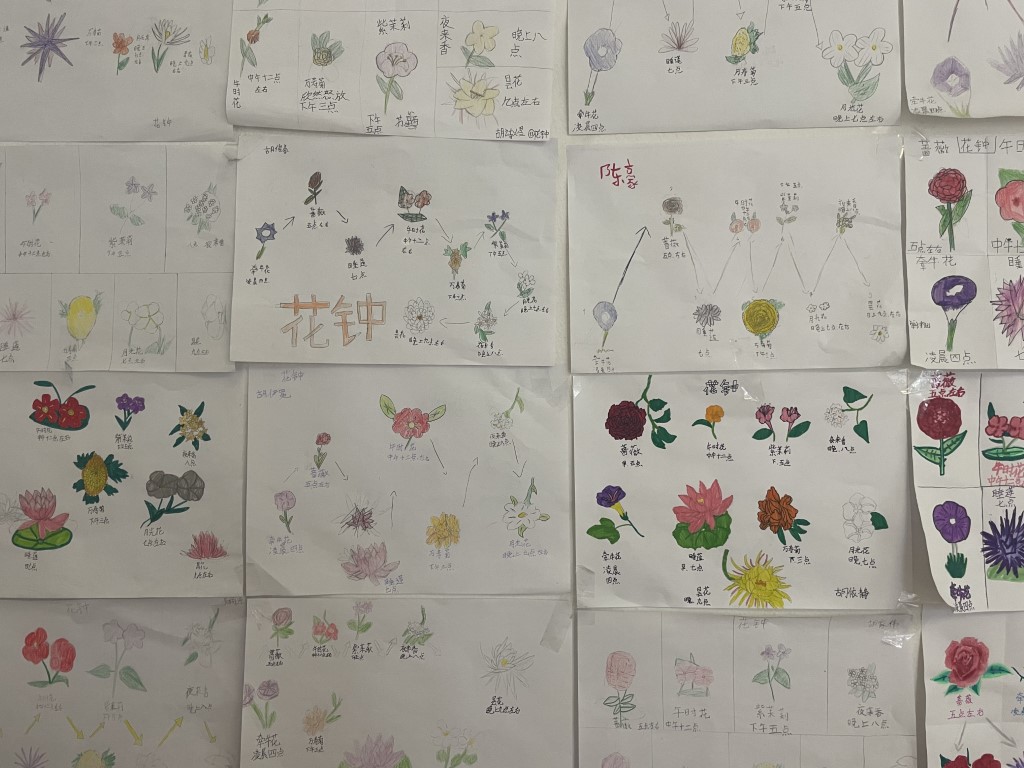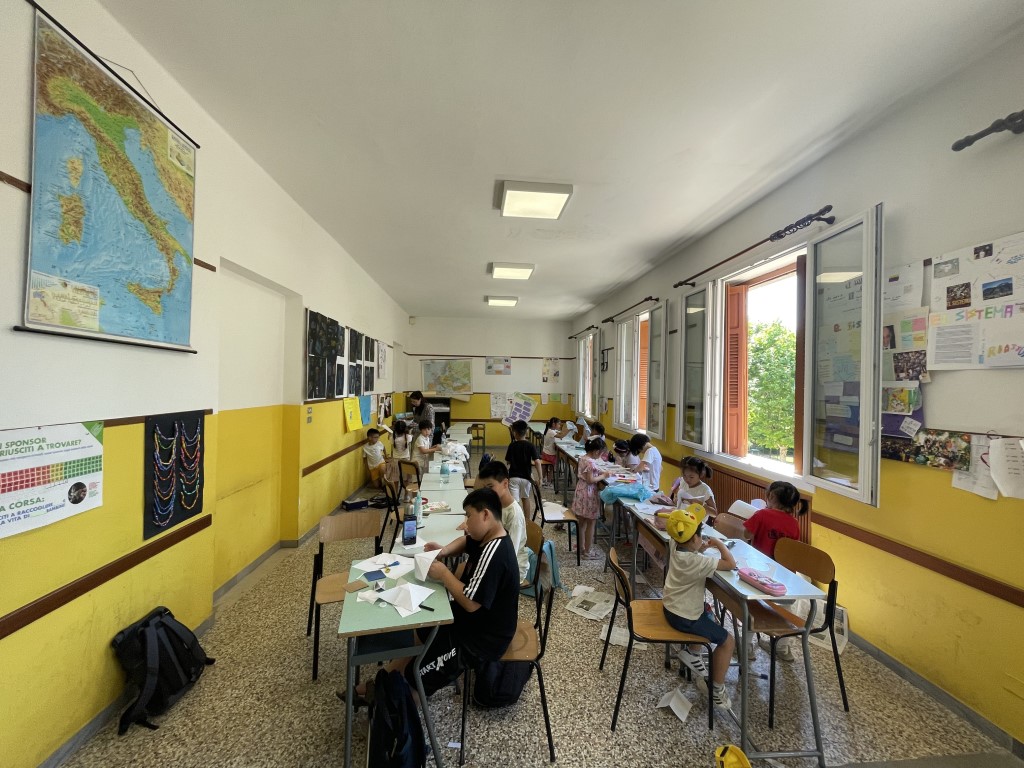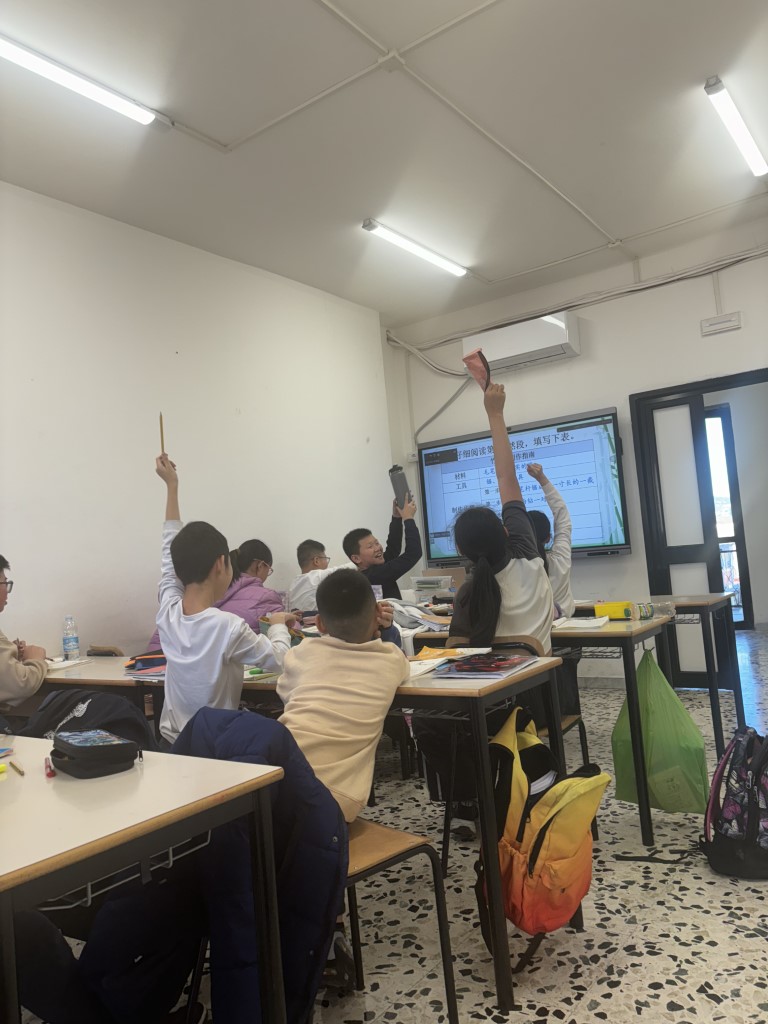International conference
ECCO-Italy
Chinese Heritage Schools in Europe
Bergamo, 15–17 January 2026
Call for Papers open until 15 October 2025.
Submit your abstract You've got until 15 October.
Call for Papers
We welcome proposals that reflect methodological pluralism — ethnographic studies, quantitative analyses, historical approaches, policy studies, theoretical proposals and critical reflections — provided that they contribute to clarifying the educational and identity dynamics that characterise Sinophone communities in European contexts.
The event is structured around three main, closely interlinked themes: Teaching, Identity, and Language Policies & Planning. Contributions may focus on one or more themes, compare different national contexts, or offer transnational reflections that highlight tensions, convergences and emerging practices.
Project Objectives
The ECCO-Italy group, through its constituent research units (University of Bergamo, University of Bologna, University of Florence and University for Foreigners of Siena), has studied — and intends to further explore — issues related to huawen jiaoyu 华文教育 / zhongwen xuexiao 中文学校, defined here as heritage language schools (HLS), along three main interconnected axes:


1. Teaching methodologies and practices
Teaching methodologies and practices for Chinese as a heritage language in Italy and Europe, as well as theoretical thinking and applied methodologies developed in the People’s Republic of China and in European bilingual schools. Contributions exploring innovative pedagogical approaches, including digital learning and online teaching, translanguaging practices, multilingual strategies in the classroom, and the role of teacher agency and creativity in shaping the learning experience are particularly welcome.
2. Identity formation and negotiation
The broad and multifaceted phenomena — such as discursive construction, textual production and social practices — associated with the formation and negotiation of identity among individuals linked to Sinophone communities in Italy and Europe. Topics may include the socialisation of heritage language learners, family language policies, diasporic youth as intercultural mediators, and the role of cultural practices and narratives in the negotiation of belonging and difference.


3. Language policies, landscape and planning (LPLP)
Additional areas of interest — in agreement and connection with the three main axes — may include, for example: the impact of HLS on mainstream education systems, the circulation of cultural texts and practices between China and Italy, the migration trajectories of stakeholders involved in HLS management, and the policy implications arising from research evidence.
Call for APPLICATIONS:
The Call for Papers welcomes empirical and theoretical contributions that fall within the above-mentioned topics, including those with a cross-cutting approach. Abstracts should clearly indicate the theoretical framework, research questions, methodology, main results and conclusions, and specify which thematic area the contribution belongs to.
Other areas of investigation — intersecting the three thematic axes (Teaching, Identity, and Policies) — may include, but are not limited to: the impact of heritage language schools (HLS) on traditional education systems; the circulation of texts and cultural practices between China and Italy; as well as the migratory paths undertaken by actors involved in maintaining HLS.
Invito alla candidatura: il presente invito sollecita studiosi e studiose a inviare proposte che affrontino — anche se non esclusivamente — i temi sopra indicati nell’ambito dei tre assi principali, che costituiranno i filoni centrali della conferenza. L’abstract deve indicare chiaramente il quadro teorico, le domande di ricerca, la metodologia, i principali risultati e le conclusioni, oltre ai riferimenti bibliografici citati. Si prega inoltre di specificare a quale degli assi tematici (Insegnamento, Identità, Politiche) si ritiene riconducibile il proprio contributo.
Guidelines for submission:
- Anonymous abstract (maximum 500 words, excluding references), plus a brief biography of the author (not anonymous).
- Lingue accettate: italiano, inglese o cinese.
- File format: .doc / .docx or .pdf.
- Send your application to: martina.caschera[at]unibg.it and andrea.delbono[at]unibg.it.
- Deadline for abstract submission: 15 October 2025.
- Notification of acceptance: 15 November 2025.
Participating Universities:
Specifications of the call:
PRIN 2022 PNRR Project
Project funded by the European Union – NextGenerationEU under the National Recovery and Resilience Plan (PNRR) – Mission 4 – Component 2 – Investment 1.1 ‘Fund for the National Research Programme and Projects of Significant National Interest (PRIN)’ (Call for proposals issued by MUR Decree No. 1409 of 14/09/2022). MUR project code [P2022E72WS] – CUP [F53D2300610001 ]
Expected duration of the project:
11/2023 – 11/2025

Responsible/scientific coordinator:
Tommaso Pellin, PA, University of Bologna, tommaso.pellin(at)unibo.it
Project partners:
Ivana Bolognesi (Unibo) – ivana.bolognesi(at)unibo.it
Yedi Yu (Unibo) – yedi.yu2(at)unibo.it
Martina Caschera (Unibg) – martina.caschera(at)unibg.it
Maria Gottardo (Unibg) – maria.gottardo(at)unibg.it
Federica Burini (Unibg) – federica.burini(at)unibg.it
Marta Pantalone (Unibg) – marta.pantalone(at)unibg.it
Andrea Del Bono (Unibg) – andrea.delbono(at)unibg.it
Valentina Pedone (Unifi) – valentina.pedone(at)unifi.it
Giuseppe Rizzuto (Unifi) – giuseppe.rizzuto(at)unifi.it
Andrea Scibetta (Unistrasi) – scibetta(at)unistrasi.it
Davide Francolino (Unistrasi) – davide.francolino(at)unistrasi.it
CONTACT US
Do you have any questions?
Do you work in a Chinese school?
Do you work in the field of education towards Chinese descendants?
Do you want more information on research?
Would you like to participate in interviews or observations?
We are always available to talk about your interest or to collaborate on new research projects or new dissemination opportunities
SUBMIT YOUR ABSTRACT
Fill in the online form
or send an email to
martina.caschera[at]unibg.it
and
andrea.delbono[at]unibg.it.